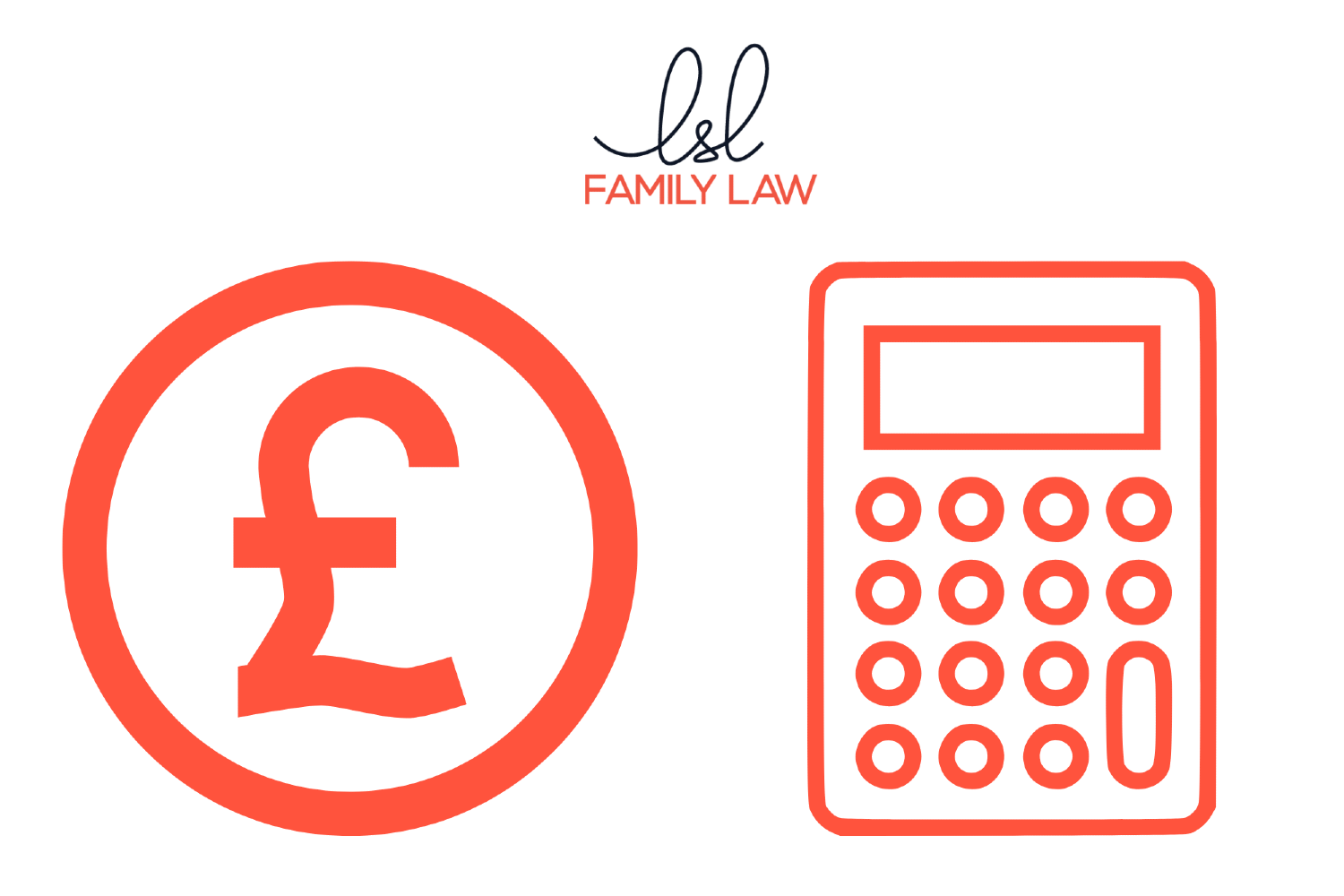This month, we were delighted to welcome a special guest, Ben Glassman, to our podcast panel. Ben is a Chartered Financial Planner from Tilney Smith & Williamson and he joined LSL Family Law’s Linda Lamb and Tanya Foster for an in-depth discussion of finances on divorce and separation. If you would like to contact Ben, his details can be found on the Our Extended Family section of our website. To listen to the original podcast, please press here. For a summary of the main points, read on…
How can you achieve a fair financial split when your marriage or civil partnership breaks down?
First and foremost, Ben recommends finding a good family lawyer. Once you have appointed a lawyer, you can build a team around you to provide the support and guidance you need on matters such as your finances.
As family solicitors, Linda and Tanya provide general advice regarding finances on separation but refer their clients to a financial expert should they require more detailed assistance when preparing their financial disclosure or ‘Form E’. A full financial disclosure is necessary from both parties to enable the separating couple to make informed decisions about dividing their assets.
When disclosing your financial circumstances, you need to be open and honest and demonstrate where all your assets are. Form E requires you to draw up a list of your cash deposits, your investments, your properties and any other financial interests you might have. You also need to understand what your outgoings are and be able to provide details about your future financial commitments as well as your future income requirements.
What type of assets are usually disclosed in a Form E?
In part one of Form E, you need to provide details of bank and saving accounts that you hold or have held at any time in the last twelve months, plus statements of value for investments such as stocks and shares, PEPs, ISAs, bonds or gilts. You also need to list your life insurance policies, cash held in excess of £500 and note any personal belongings with a value exceeding £500. Every family is different. Some people might need to declare an art or music collection or a vintage car, others jewellery or a television. There is also a section for listing property you own – the family home plus any other land or buildings you have an interest in. In part two, you need to state any debts or liabilities: personal loans, credit and store cards or hire purchase agreements for example. The form is extremely comprehensive and there is a helpful checklist at the back showing all the documents you might need to include with your Form E. If people seem reluctant to disclose their assets, this arouses suspicion and can result in the breakdown of communication between parties. And this is precisely what Linda and Tanya are trying to prevent because maintaining effective communication between a separating couple is crucial for a positive long term outcome.
Pensions (and why they are so important!)
According to Linda, pensions are a huge – and probably the most complex part – of separating assets. Unfortunately, it is something that is often overlooked. In fact, one of the most common claims against family lawyers is their failure to advise clients about their pensions and what can happen to them. If there are complexities with financial assets such as pensions, this is the time to call on experts like Ben. Ben can provide advice on pension splitting but also on investments which have tax burdens, liquidity issues, or which might have a future value such as a startup company or private equity.
Enquiries about pensions are common because the majority of individuals will have a pension. The most important aspect for anyone going through this process is to understand the type of pension that is being considered. Not all pensions are the same but they are all valued in a similar manner and that can be really dangerous.
Broadly speaking, there are two main types of pensions: defined contribution pensions and defined benefit pensions. Defined contribution pensions are when an individual makes a personal contribution that might be matched by their employer, the government might provide some tax relief and that fund is allowed to grow. The value of that pension is the amount of money in the pension pot. Defined benefit pensions, which are sometimes known as final salary pensions, involve guarantees by an employer. Final salary schemes, which might be found in the public sector such as the NHS pension or the police force pension, are far more complicated and have significantly higher guarantees than your own personal pension.
The interesting thing is that when completing your Form E, you are required to obtain a valuation from the scheme administrator for both types of pension plan. The plan administrator will respond with a C.E.V. – a Cash Equivalent Valuation. That valuation will be a number. It might be £100,000, it might be a million pounds, or it might be five million pounds. The important point to remember is that a million pounds worth of a defined contribution pension – the pot of money – is very different and significantly lower than the same amount of a defined benefit pension. To put it another way, if you have a defined benefit pension that pays £10,000 a year, the equivalent – with the same valuation – of a defined contribution pension might only be £5,000 a year. That is a really important aspect to be aware of when you are going through matrimonial proceedings.
Furthermore, what has historically been a problem is when couples have offset a pension for a property. If, for example, the husband wanted to keep hold of his pension which had a valuation of a million pounds and the wife preferred to retain the family home which was also worth a million pounds and they split the assets in that manner, the value of the million pound pension could be worth significantly more on an open market basis than a million pounds worth of property. That is a fundamental distinction that needs to be considered when dividing the assets.
Which financial issues do separating couples find the most difficult to resolve?
Linda and Ben both agree that the biggest stumbling block is usually pensions. As Linda notes, state pensions can be a sticky area because people do not want to split them. Every case is different, though – Linda conducted one mediation where the biggest bone of contention was a designer chair! The couple ended up laughing about it during the final mediation session because it was obvious that they couldn’t both have the chair.
Sticking points can be anything – whether to sell or keep the family house, reluctance to share pensions – every single item can be an issue. And, as Ben highlights, there are frequent examples in the media of separating couples fighting over their pets! The issues simply depend on the circumstances and how people react to what can be one of the most stressful periods of their lives. The key is supporting clients through this difficult time and striving for a fair outcome for both parties.
What is the average time for the resolution of financial matters?
In Tanya’s experience, a couple can resolve their financial issues within a year, but there are no typical cases – every family is unique and even the most conciliatory style of resolution can take time. It is difficult to deal with one aspect in isolation from another and all the different items need to be worked through. Sometimes, court proceedings take longer than expected and delays in the family court system are one of many good reasons to look for an alternative solution. We encourage people to self-determine their outcome via mediation, while arbitration is an excellent way of avoiding lengthy timescales in the family court. Couples often need time between mediation sessions to do their homework, compile their financial disclosures and obtain advice from people like Ben so that they can make informed decisions in subsequent meetings. It can also be useful to have experts like Ben present at meetings – it’s all about tailoring the process to meet the needs of a particular couple or family.
What are the benefits of using family mediation?
When couples use issue resolution methods such as mediation, they are making decisions for themselves. The minute you go to court, you lose control because a judge will decide what is going to happen to you. For most couples, mediation is the cheapest option and sometimes the sessions can improve their communication skills. The same financial disclosure takes place in mediation as it does during court proceedings – mediation is just as thorough. The couple gathers their financial information and then we sit down and look at the assets with them, using the same criteria as the court. As a mediator, you can’t provide the couple with legal advice, but you can give them information. In this respect, being a family lawyer is rather useful because we receive regular feedback from the courts regarding what they are doing and how they are viewing things. It does change over time, so being up to date with the court process can benefit your mediation clients. After that, it is a question of assisting the couple to talk through their issues. They have the opportunity to discuss everything there and then, ironing out the details and avoiding death by legal correspondence! If there is a document missing, one party can simply email it to the other and save themselves the time and money it would take for solicitors to correspond. In as little as three to five sessions of mediation, we can be ready to have a consent order drafted by their lawyers.
What about cohabiting couples?
Sadly, there are no legal entitlements for cohabiting couples in England and Wales. In Scotland and in many other jurisdictions, there is a measure of legal protection. This is something that has been talked about and recommended for many years and Resolution are campaigning for cohabiting couples to have basic rights on relationship breakdown and the death of their partner. Many people are under the illusion that they have automatic rights only to find out that this is not the case. It is not uncommon for clients to contact us – usually women – who have been with their partner for 25 or 30 years. Their children have grown up, all the assets are in the man’s name and they will get none of it, leaving them financially vulnerable. Linda does come across quite few cohabiting couples in mediation and many of them do decide to go down a sensible route and talk things through, but there isn’t the automatic protection that people imagine: there is no such thing as a common law husband or wife.
As Tanya explains, there are some cases where one unmarried partner has managed to make a claim on a property where they weren’t named on the title, but costs can be so prohibitive that it is outlandish to propose that court proceedings would be a fair solution for someone, even if it is right that they should receive a share. What we advocate for couples who are not married or in a civil partnership is to create an agreement so they know where they stand.
From a financial planning perspective, Ben explains that such agreements are increasingly common, especially where assets are being transferred from parents to their children for inheritance tax planning, particularly for property purchase. Conversations about prenups or cohabitation agreements are pretty easy to have these days, whereas ten years ago it probably felt awkward. Now, there is almost an expectation, because it is so difficult for young couples to buy properties, that if there is financial input from parents that it is somehow segregated. This opens up the conversation about cohabitation agreements far more easily than in the past.
Prenuptial Agreements
Similarly to cohabitation agreements, prenuptial agreements, which might once have been viewed with suspicion, are now a popular, pragmatic option. Often, a couple seeking a prenup will have been married before, so they want to protect assets for their children, or there is a big asset involved such as a family farm. Once you have had these tricky discussions, you can move forward. Prenups might not have a romantic reputation, but it is even less romantic to be fighting over assets if your relationship ends. These agreements need to be made properly so there is no point contacting a lawyer on the Friday when you are due to be married on the Saturday. Independent legal advice is essential and agreements should be well-drafted, taking into consideration things that might happen in the future. Family lawyers will take account of case law, what has to be included, the process and the time scale. An agreement needs to be made well in advance of the marriage, otherwise it would appear that one party is being pressured into signing. If you follow procedure then the agreement will be as strong as it can be and it is a lot less expensive to involve lawyers and experts at the beginning, when issues are not in dispute. Don’t forget that prenups protect both parties – not just the wealthier individual – and the agreement can be tailored to suit the needs of the couple.
Top tips!
The most ‘successful’ divorces, according to Ben, occur when couples are willing collaborate and communicate with one another. If you are confrontational in your approach to separation, you forgo opportunities to mitigate tax, even out pensions etc. You can only achieve this by working together and having the right experts around you.
At the start of the divorce process, people can feel as if they are at the bottom of an insurmountable mountain, says Linda. With the support of a multidisciplinary team, you will get through this period in your life and be able to move on. Don’t focus on the past, start looking to the future.
Getting good advice early on will give you peace of mind, adds Tanya. The Resolution website contains details of family law professionals who will be able to give you specialist help and support with your specific situation.
Where can I find more information?
If you would like to find out more, please visit our services page or contact Linda or Tanya on 01273 041011.
Other reliable sources include the Resolution website, the government website pages entitled money and property when you divorce or separate, the Family Mediation Council website and the financial provision section of the Advicenow website. A video by the University of Manchester Sociology Department entitled Pensions on Divorce: what should you do? also contains some helpful information.






